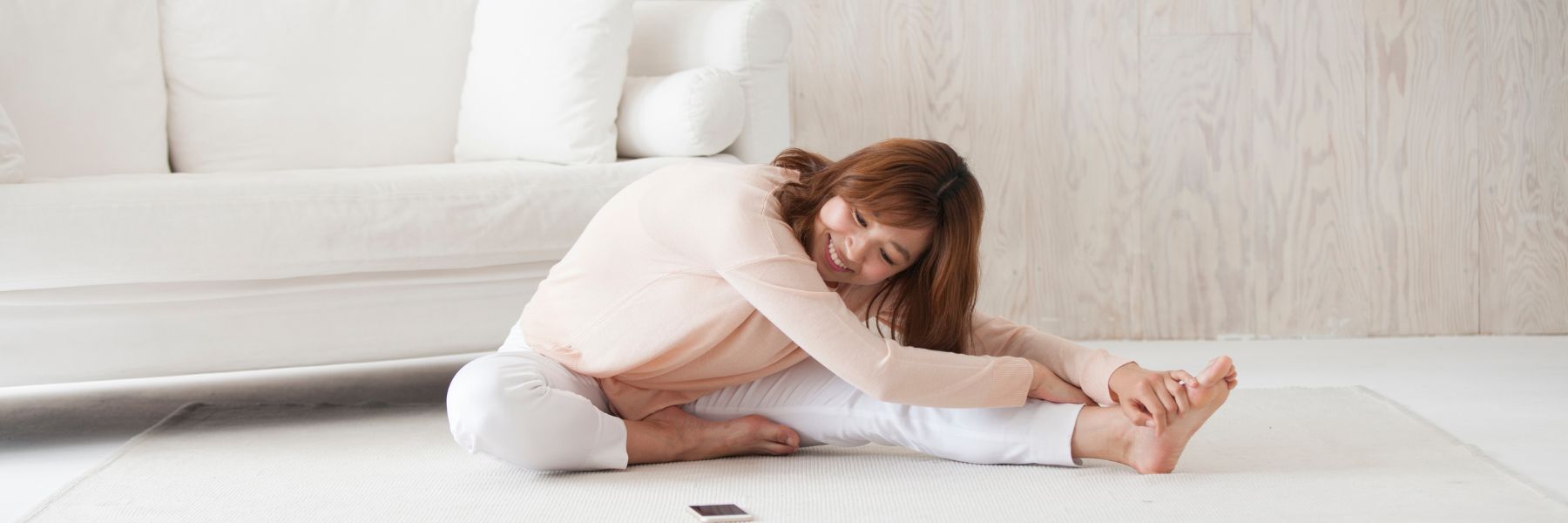

33 Ways to Improve Your Sleep
Making sleep a priority and developing good sleep hygiene habits will not only give you more energy and focus, but it will . . .
Sleep plays a crucial role in our physical, mental, emotional, and spiritual health, yet it’s often one of the first things to go when people get busy. Not getting enough z’s at night—whether it’s due to poor quantity or quality—puts you at a greater risk for diabetes, heart disease, and stroke; increases your calorie intake; impairs your immune system; negatively impacts your daytime energy and productivity, and more.
Making sleep a priority and developing good sleep hygiene habits can make all the difference. Here are seven things that affect your sleep and thirty-three tips that will help you sleep better, give you more energy and focus throughout the day, and enhance your quality of life.
Natural Circadian Rhythm
According to the National Sleep Foundation, “your circadian rhythm is basically a 24-hour internal clock that is running in the background of your brain and cycles between sleepiness and alertness at regular intervals. It’s also known as your sleep-wake cycle.” Your circadian rhythm, which is affected by lightness and darkness, tends to correspond with daytime and nighttime. When it’s dark at night, your eyes send a signal to your brain which then sends a signal to your body to release melatonin, making your body tired. The more you pay attention to your body and notice feelings of alertness and drowsiness, the better you’ll sleep at night and feel throughout the day.1

- 1. Go to sleep and wake up at the same time every day, even on weekends. To avoid having difficulty falling asleep and to get quality shut-eye, choose a bed time when you normally feel tired. If you have a hard time waking up in the morning, you probably need to go to bed earlier—you should be able to wake up without an alarm.
- 2. Avoid staying up late and sleeping in. Altering your sleep schedule by only an hour or two can wreak havoc on your circadian rhythm. On nights when you do stay up later or mornings when you do get a little extra shut-eye, try to limit the difference to within an hour of your normal sleep and wake times.
- 3. Take naps—but only when necessary. On days when you do stay up late or are feeling extra tired, make up for lost sleep by taking a nap rather than sleeping in so as to not disrupt your natural sleep-wake cycle. Adults should limit naps to fifteen to twenty minutes in the early afternoon to avoid waking up groggy and making it difficult to fall asleep at night.
Light Exposure
Melatonin is a natural hormone that is associated with the onset of sleep. When it’s dark at night, your brain produces melatonin, making you tired. When the sun rises in the morning and you are exposed to natural light, your melatonin levels drop and are almost undetectable during the day, making you more alert. But exposure to artificial light can affect your production of melatonin and alter your circadian rhythm.

- 4. Get a dose of bright light in the morning. Exposing yourself to sunlight as soon as you rise from your slumber will help you wake up. Have your morning coffee or breakfast outside, open up curtains and blinds, or go for an AM walk.
- 5. Spend more time outside during the day. Take your work breaks outside, go for an afternoon walk, or exercise al fresco during your lunch hour.
- 6. Brighten up your home and workspace with as much natural light as possible.
- 7. Avoid bright screens (cell phones, computers, TVs, iPads, Kindles, etc.) 1–2 hours before bedtime. The blue light from these devices (and the stimulation from whatever you’re engaged in) interferes with your body’s production of melatonin, making it harder to sleep. If you can’t stay off your phone, e-reader, or other electronics, try adjusting the brightness or using a light-altering software.
- 8. Turn down lights in your house as you get closer to your bedtime. This helps signal your body that it’s time to sleep.
Exercise
According to David Cloud, CEO of the National Sleep Foundation, “exercise is great for sleep. For the millions of people who want better sleep, exercise may help.”2 A poll conducted by the Foundation found a strong relationship between sleep and exercise: exercisers report better sleep than non-exercisers, even though they slept the same amount of hours each night. While vigorous exercisers are almost twice as likely to report that they slept well, even light exercise can improve sleep quality.3

- 9. Walk every day and practice Pietra Fitness at least three days per week. Max Hirshkowitz, PhD, poll task force chair, says that adding a daily 10-minute walk could improve the likelihood of a good night’s sleep.4 Pietra Fitness classes combine stretching and strengthening exercises with Christian prayer and meditation to nourish your body, mind, and soul—leaving you feeling calmer, stronger, refreshed, and energized.
- 10. Be mindful of the time of day that you exercise. Findings vary as to whether or not exercising too close to bedtime disrupts sleep. If you find that working out in the evening makes it harder for you to fall asleep, exercise earlier in the day.
- 11. Get up throughout the day. Spending too much time sitting (more than eight hours) can negatively impact your sleep quality and health. “In addition to exercise, standing at your desk, getting up for short breaks, and moving around as much as possible are important healthy behaviors to include in our lives,” says Professor Marco Tulio de Mello, poll task force member.5
Sleep Environment
Is your bedroom too hot? Not dark enough? Not quiet enough—or maybe too quiet? Making small changes in your sleep environment can make a huge difference in the quality of your shut-eye.

- 12. Keep your bedroom cool. Turn the temperature down at night or consider buying a fan.
- 13. Keep your bedroom dark. Darkness is essential when it comes to sleep, since it tells your brain and body that it’s time to relax. Any light in your room can interfere with this natural process. Think about investing in blackout curtains, turning backlit alarm clocks away from you, and removing any unnecessary light sources.
- 14. Keep your bedroom quiet. If you need to drown out noise coming from outside or other rooms in your house, a white noise machine or fan should do the trick.
- 15. Keep lights low if you wake up in the middle of the night.
- 16. Ensure that your bed is comfy. That includes everything from the firmness of your mattress and pillow to the material of your sheets. Waking up with a sore neck or back is a sure sign that something needs to be adjusted.
- 17. Reserve your bed for sleeping and intimate time with your spouse. Spending too much time in or on your bed—working, watching TV, using your laptop, etc.—when you’re not sleeping affects your brain’s ability to associate your bed with sleep.
- 18. Remove distractions from your bedroom. Whether it’s a TV, cellphone, laundry, or piles of clutter, anything that distracts your brain can cause you to toss and turn at night.
Food and Drink
Drinking too many liquids in the evening or right before bed is not the only thing that can cause you to get less than adequate sleep.

- 19. Avoid heavy and large meals and spicy food within a few hours of bedtime. Eat dinner earlier, and have a light snack before bed if you’re hungry.
- 20. Avoid alcohol, nicotine, and caffeine before bed. Even though alcohol may help you relax, it interferes with your natural sleep-wake cycle—as do stimulants like nicotine and caffeine. The effects of caffeine can last for six to eight hours, so make sure you drink that cup o’ joe a minimum of six hours before your bedtime.6
- 21. Cut back on refined carbs and sugary foods. Simple carbohydrates like white bread, pizza dough, pata, pastries, white flour, white rice, sweet desserts, and many cereals digest quickly and their high glycemic index, cause an unhealthy spike in blood sugar and fluctuations in energy levels—as well as a slew of other health-related issues.7 One study found that “the higher the dietary glycemic index—particularly when fueled by the consumption of added sugars and processed grains—the greater the risk of developing insomnia.”8 Therefore, cutting back on these comfort foods may help you sleep at night.
Bedtime Routine
Doing the same thing every night thirty minutes to an hour before bed can train your brain to know when it’s time to sleep. Consider making one or several of these suggestions part of your relaxing bedtime routine.

- 22. Take a warm bath.
- 23. Write it down. Jotting down things that are on your mind or writing about your day can help you let go of stress and worrisome thoughts and provide closure to the day.
- 24. Read. Make sure the content is light and not over-stimulating.
- 25. Practice deep breathing and pray. Belly breathing can lower your heart rate, blood pressure, and stress levels, helping you fall asleep. Doing a Gentle Pietra Fitness class such as Night Prayers (or one of the other Gentle classes) will calm your nervous system, also making it easier to drift off to sleep.
- 26. Listen to soft music.
- 27. Release tension. Take a few minutes to identify areas in your body where you may be holding tension. When we are under stress, we tend to tighten our muscles, especially in our shoulders and neck. (Doing a Gentle Pietra Fitness class is a great way to relieve tension in your body.)
- 28. Dim the lights in your house.
- 29. Sip on a drink that naturally contains melatonin. Enjoy chamomile tea, valerian tea, tart cherry juice, or almond milk.
Falling Back to Sleep
Briefly waking up at night is normal, but not being able to fall back to sleep can definitely be frustrating and impact your energy level the next day. Make a plan for those times that you find yourself lying awake in the middle of the night.
- 30. Don’t stress. Feeling anxious about your inability to fall back to sleep will only make matters worse.
- 31. Focus on relaxation and rest, not sleep. Sleep is important, but rest is also rejuvenating. Try focusing on your breath, practicing another relaxation technique, or praying the rosary.
- 32. Journal. If you can’t fall back to sleep because your mind is racing or you’re thinking about some big idea, try jotting down your thoughts.
- 33. Do something non-stimulating. If you’ve been awake for more than fifteen minutes, get out of bed and try doing something quiet like reading.
Everyone’s sleep needs are different—and your sleep needs will change throughout the course of your life. Paying attention to those needs and getting a good night sleep is one of the most important things you can do for your health. Experiment with these tips and figure out what works best for you.
- https://www.sleepfoundation.org/articles/what-circadian-rhythm
- https://www.sleepfoundation.org/press-release/national-sleep-foundation-poll-finds-exercise-key-good-sleep
- Ibid
- Ibid
- Ibid
- https://pubmed.ncbi.nlm.nih.gov/24235903/
- https://www.helpguide.org/articles/healthy-eating/choosing-healthy-carbs.htm
- www.sciencedaily.com/releases/2019/12/191211171335.htm



